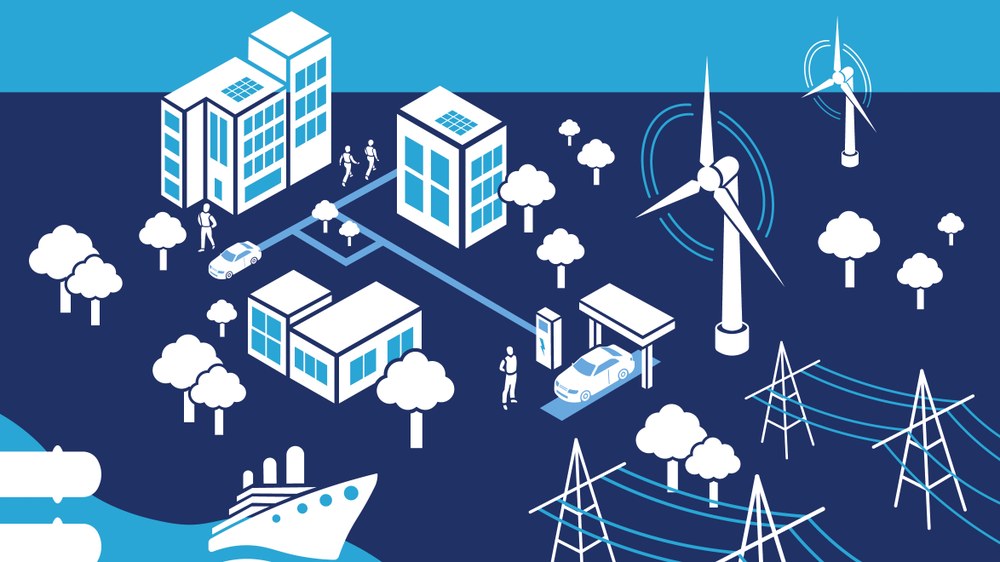Sustainable transformation paths for the energy system

Mediengestaltung, CSE-MEP/KIT
- The new Helmholtz study develops integrative scenarios that are intended to serve as an improved basis for decision-making in politics, business and society.
- In addition to technical and economic aspects, the integrative approach also maps ecological, institutional, organisational and social aspects and their mutual interactions.
- The study was compiled by researchers from the Institute of Networked Energy Systems, the Karlsruhe Institute of Technology and Forschungszentrum Jülich.
- Focus: Energy, scenarios, system analysis
In shaping the energy transition, politics, business and society are largely guided by analyses of possible development paths. However, because these energy scenarios have so far focused primarily on what is technically feasible and economically viable, researchers at the Institute of Networked Energy Systems, together with the Karlsruhe Institute of Technology and Forschungszentrum Jülich, have developed an integrative scenario approach that also takes into account ecological, institutional, organisational and social aspects and their mutual interactions. The associated study has now been published as a policy brief under the title "Integrative Considerations on Energy Transition" as part of the Helmholtz Association's "Energy System Design" research programme.
The primary aim of the study is to improve the decision-making basis for the sustainable transformation of the energy system up to 2045, where the integrative scenario approach better reflects the complexity of the challenges than many of the scenarios currently being discussed. For example, it is not advisable to base future energy scenarios solely on one estimate of the development of the population and the economy. These are difficult to predict because global events such as conflicts or the development of the EU influence population development just as much as the global markets influence the German economy. Depending on the scenario, this has a considerable influence on the energy demand to be forecast. The researchers are therefore in favour of always assuming a realistic range of population and economic development in scenario studies.
The authors of the study agree that electricity demand will increase from the current 600 terawatt hours to between 1100 and 1300 terawatt hours per year by 2045. "This is why the electrification of production and transport processes should be at the centre of future strategies," emphasises Prof. Dr Patrick Jochem, Head of the Energy System Analysis department, who played a key role in the study. "We need spatial and temporal flexibility in the electricity sector, probably supplemented by the use of predominantly imported green hydrogen." The transformation of the heating sector, in turn, requires a combination of energy-efficient building refurbishment, a change of energy source and the expansion of electricity and heating grids.
In order to meet the rising demand, electricity generation from renewable sources in Germany must be expanded much faster than it has been to date, says Jochem, and goes on to specify. "In our scenarios, we see a necessary increase in installed capacity by 2045 to 370 to 435 gigawatts for photovoltaics, 210 to 220 gigawatts for onshore wind power and 53 to 70 gigawatts for offshore wind power. That is more than three times the capacity installed today."
With their analyses, the researchers also make it clear that a climate-friendly energy system goes hand in hand with a high demand for raw materials, many of which are classified as "critical" by the EU. It is therefore important to develop suitable strategies to meet this demand in an environmentally friendly way and reduce geopolitical risks. In addition, the results point to an increase in the domestic energy sector in terms of value creation. In terms of the economy as a whole, however, no substantial change in labour demand is to be expected despite the considerable change process.
